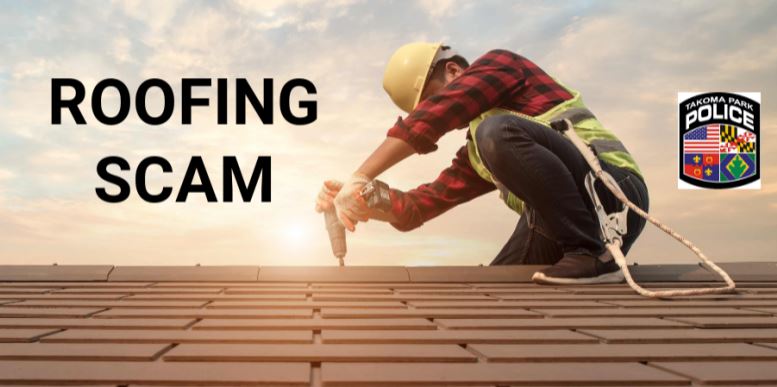Roofing Scam
Roof repair scams are often designed to separate you from your money in the form of upfront payments or by cashing in on a homeowners insurance claim. They’ll leave you with unfinished or shoddy work.
Here’s how a typical roof scam works: Someone will contact who claims to be a contractor (they might even knock on your door). The scammer will pressure you to sign a contract on the spot or pay upfront. They may even offer to inspect your roof—for the sole purpose of intentionally causing more damage to inflate an insurance claim.
Here are some common types of roof repair scams to be aware of:
Demanding payment in advance. A dishonest contractor will insist you pay them upfront before they begin work. But the contractor disappears and never completes or even starts the job.
Exaggerated damage. The contractor will overstate, exaggerate, or lie about the extent of the damage in hopes of overbilling you or your insurance company. In some cases, they might create more damage so they can ring up a bigger bill.
Lowball bids. Some scammers will try to entice you with a sweet deal. They’ll come in with a much lower offer than other contractors, or they might claim they’re running a “special deal.” They may even offer a rebate on your insurance deductible. These types of offers are usually too good to be true.
Shoddy repairs. The contractor might do the work, but it’s usually rushed and with substandard material.
First and foremost, don’t sign anything, and don’t pay any contractors up front for roof repairs. If you think your roof has damage, your first phone call should be to your insurance agent to make a home insurance claim for roof damage. Your insurer will send out an adjuster who can inspect the damage. Try to get a couple of estimates from local, reliable companies.
Here are more tips to avoid being scammed:
Get more than one estimate. Don’t let one contractor pressure you into hiring them for the job.
Work with licensed and insured contractors. While not all states license roofing contractors, it’s a good idea to find out if your state does. Ask to see their proof of contractor’s liability insurance and make sure the policy’s effective dates have not expired.
Do your research. Check to see if the contractor is a member of any local, state, regional, or national roofing industry associations. Check if they’ve had any complaints filed with the Better Business Bureau. Ask for client references and a list of completed projects.
Get a signed contract before the work begins. Make sure it specifies the cost, time schedules, payment schedules, guarantees, and any other expectations. Do not leave any portion of the contract blank.
Coordinate with your insurance company. Make sure your adjuster inspects the damage before the repairs begin. Your claim could be denied if the insurance company doesn’t inspect the damage first, meaning you’ll be stuck paying out of pocket.
Pay with a check or credit card. Do not pay in cash. Do not pay the contractor in full or sign a completion certificate until the work is completed to your satisfaction and in compliance with local building codes.
If you suspect a roof repair scam, contact your state’s insurance fraud bureau or the NICB.

